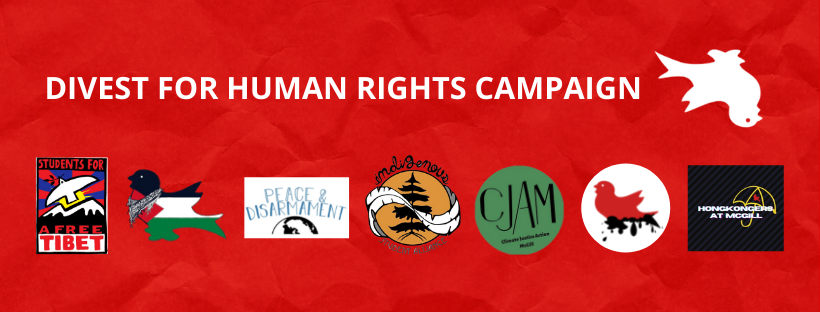
CLIMATE JUSTICE CAMPAIGN
The climate crisis encompasses the observable and future irreversible effects of global warming, including environmental degradation, loss of biodiversity, increased natural disasters, and more.
To address the climate crisis effectively and equitably, SSMU supports a diversity of tactics inscribed in a climate justice framework as defined in our Climate Justice Policy and Sustainability Policy. At McGill, two student groups are particularly involved in the climate justice campaign: Climate-Justice Action McGill (C-JAM) and Divest McGill.
Climate-Justice Action McGill works through non-violent direct action to demand climate justice from the McGill Administration, the provincial and federal government. It is founded on principles of anti-oppression and systemic change and the belief that “the climate fight is inextricable from principles of anti-racism, anti-colonialism, feminism, anti-capitalism, and social justice”. C-JAM is mainly responsible for the Student Climate Strikes that happened at McGill and continues to build solidarity with other grassroots organizations by mobilizing for various issues. Indeed, climate change – and responses to it – disproportionately impact systemically marginalised groups (including Indigenous, Black, poor, racialized, and Global South communities), who are also least responsible for the ecological crisis.
- Follow @ClimateJusticeActionMcGill on Facebook and Instagram
- Email: planettakesmcgill@gmail.com

Divest McGill: Since 2012, Divest McGill has been pushing for change through research, education, and mobilization. Divest calls on McGill University to acknowledge and address the urgency of the climate crisis by divesting from its investments in the fossil fuel industry. McGill has refused to do so three times. Currently, the university has roughly $50 000 000 invested in the fossil fuel industry, with $4.7 million invested in the CGL pipeline violating unceded Wet’suwet’en territory. We are part of a worldwide, growing movement. More than $9.94 trillion is being divested from the fossil fuel industry all around the world, and 15% of that comes from educational institutions. Reach out to us on any of our social media platforms and come join the campaign!
- Follow @DivestMcGill on Facebook, Instagram and Twitter
- Website: www.divestmcgill.ca
- Email: divestmcgill@gmail.com

Resources to Learn More:
https://www.mcgilldaily.com/2021/02/open-letter-respect-wetsuweten-sovereignty-and-divest-from-cgl-pipeline/ and http://www.mcgilltribune.com/news/26042021/
Paid by McGill video